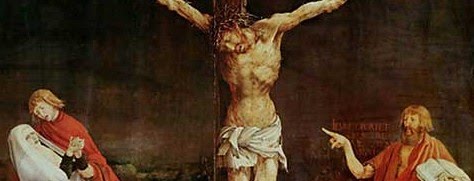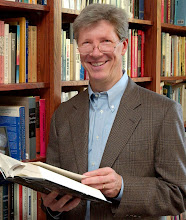Watch here. Text below.
Jeremiah 32, beginning with verse 1. “The word that came to Jeremiah from the Lord in the tenth year of Zedekiah king of Judah, which was the eighteenth year of Nebuchadnezzar. At that time the army of the king of Babylon was besieging Jerusalem, and Jeremiah the prophet was shut up in the court of the guard which was in the palace of the king of Judah. Jeremiah said, “The word of the Lord came to me: Behold, Hanamel your uncle will come to you and say, ‘Buy my field which is at Anathoth, for the right of redemption by purchase is yours.’ Then Hanamel came to me in the court of the guard, in accordance with the word of the Lord, and said to me, ‘Buy my field which is at Anathoth.’ Then I knew that this was the word of the Lord. And I bought the field, and weighed out the money to him, seventeen shekels of silver. I signed the deed, sealed it, and got witnesses. Then I gave the deed of purchase to Baruch, in the presence of all the Jews who were sitting in the court of the guard. I charged Baruch in their presence, saying, ‘Thus says the Lord of hosts, the God of Israel: Take these deeds, both this sealed deed of purchase and this open deed, and put them in an earthenware vessel, that they may last for a long time. For thus says the Lord of hosts, the God of Israel: Houses and fields and vineyards shall again be bought in this land.’”
Jeremiah had grown up in Anathoth. When I was a little boy, my family lived in Savannah, Georgia. My favorite place was an old brick structure on a little spit of land sticking out into the Atlantic Ocean called Fort Pulaski. And my school was called Casimir Pulaski Elementary School. Pulaski, you may know, was born in Warsaw. He fought for the Polish-Lithuanian Commonwealth against – yes – the Russians. Then he came to America and fought against the British, until he was shot and killed in my hometown, Savannah.
In a way, Pulaski was a failure. The Polish-Lithuanian Commonwealth fell. The battles in which he fought were losses. In America he had a few successes, but he died, only 34 years old, far from home. He had never married or had children. When he drew his last breath, he did not know if the war would be won or not.
What is God asking of us? To succeed? To
win? To see the fruit of our labors? No. God asks us to have some courage. God
asks us to love. God asks us to hope. Hope isn’t some naïve belief that
tomorrow ill be a better day. Hope is prepared is tomorrow is worse than today.
Hope depends on God’s future. Vaclav Havel, when he was President of
Czechoslovakia, said Hope is the ability to work for something simply because
it is right, whether it stands a chance of succeeding or not.
In America, 70 years ago now, a Christian farmer named Clarence Jordan read his Bible and thought he was supposed to do what it said. So he created a commune where white and black people lived and worked together – in rural Georgia in the 1950’s. He got kicked out of his church, and the Ku Klux Klan (a racist terrorist organization) burned all of the crops just as it was time for the harvest. A news reporter stood in the burned out field with Jordan and said to him, “You have failed! What will you do now?” Jordan replied, “We’ll plant again. God doesn’t ask us to be successful. God asks us to be faithful.”
About 800 kilometers from here is a small town in Lithuania called Birzai. Several times, I have visited there and stayed with my friend Regina. She grew up as an atheist, but then converted to Christianity as an adult. Her house is tiny, with no running water. I thought of her as poor. But one day she took me with her to the people she thinks of as poor, delivering food and medicine she could hardly afford for herself, praying with the poor, hugging them, reading to their children. The poor serving those poorer. I asked her, “Regina, why do you sacrifice what you really need for yourself for others?” She was puzzled by my question, saying “That’s just what Christians do, right?”
Jeremiah purchased a field he couldn’t really afford, when no one was
buying property, when its value would only drop lower and lower. He would get
no return on his personal investment. It was a dramatic act of hope. His
investment was in God’s future, not his own. He was revealing to skeptics that
God was still God, that rough times were ahead, but in the end, God would
reign. He was a man of tremendous hope. He didn’t need to see the return on his
investment. But he knew it would come, someday, in God’s good time.
The theologian Reinhold Niebuhr once said
“Nothing worth doing can be accomplished in a single lifetime. Therefore, we
are saved by hope.” To the world, hope looks like foolishness. What fool would
purchase land during the Babylonian invasion? What fool would re-plant crops,
knowing they probably would be burned down again? What fool poor person shares
with poorer persons? The apostle Paul wrote about the “foolishness of the
Gospel,” urging us to be “fools for Christ.” It’s God’s wisdom, this
foolishness. It’s hope. It’s joy.
Two things in closing. Jeremiah signed the
deed and sealed it up in a jar – and we read about it, 2,500 years later, in a
very different language, on the other side of the world. Jesus broke bread and
shared wine with his disciples in a room in Jerusalem, and we have the audacity
to believe we are there with him, with them, 2,000 years later, on the other
side of the world. Next Sunday is, for us, World Communion Sunday. We are
foolish enough to believe that, even though our group will be back in America,
we will mysteriously and mystically be here, in this room with you at our
Lord’s table. It’s a miracle. Skeptics may scoff. But we are one, across time
and space. It’s God’s time and space. We are his Body, always together,
separated only by miles and hours and language. We are One in the Spirit.
Christ stretched his arms out to embrace you, and us, reaching around the
globe, enveloping all of us in a love that cannot be crushed or lost.
Foolishness to the world, but our good reason to hope.
And then there’s this. Casimir Pulaski fought bravely, for a lost cause, and then for a winning cause he never witnessed. He probably saved several lives, but we know about one life he saved. At the Battle of Brandywine Creek in 1777 – which the Americans lost! – Pulaski saved the life of George Washington. If he had not saved that one life, America probably would have lost the war. America would not have had Washington as its first President. That one life mattered in ways Pulaski and the other Americans fleeing that battle just to survive could never have imagined. Jews often say that to save one life is to save the world.
A few days after the Russians invaded
Ukraine, I was talking with our Bishop here, Patrick Streiff. He reported to me
that the Methodist churches in Poland were stepping up with great hospitality
and courage to welcome Ukrainian refugees. Guests. Friends. He told me that a
young woman got off a bus, walked into a Methodist church, and gave birth a few
hours later. Everything we do, we together, the Body of Christ across this
globe, our church and your church, really just one church in God’s heart, is about
saving one life. That one child: who knows what that child will become? Maybe a
future President of Ukraine. Maybe the one to bring peace to eastern Europe.
Maybe a scientist discovering a cure for cancer. Maybe a pastor, or a parent.
Maybe just a Christian, a faithful disciple of Jesus, another companion of
Jesus, and my children and their children.
I saw a woman wearing a t-shirt the other
day that said “Hope addict.” We are hooked on hope. We invest in God’s future. We
will be faithful. It’s just what Christians do. It includes all of us, and is
bigger than us. It’s as big as just one child, like the Christ child himself,
God in the flesh, Emmanuel, God with us.











